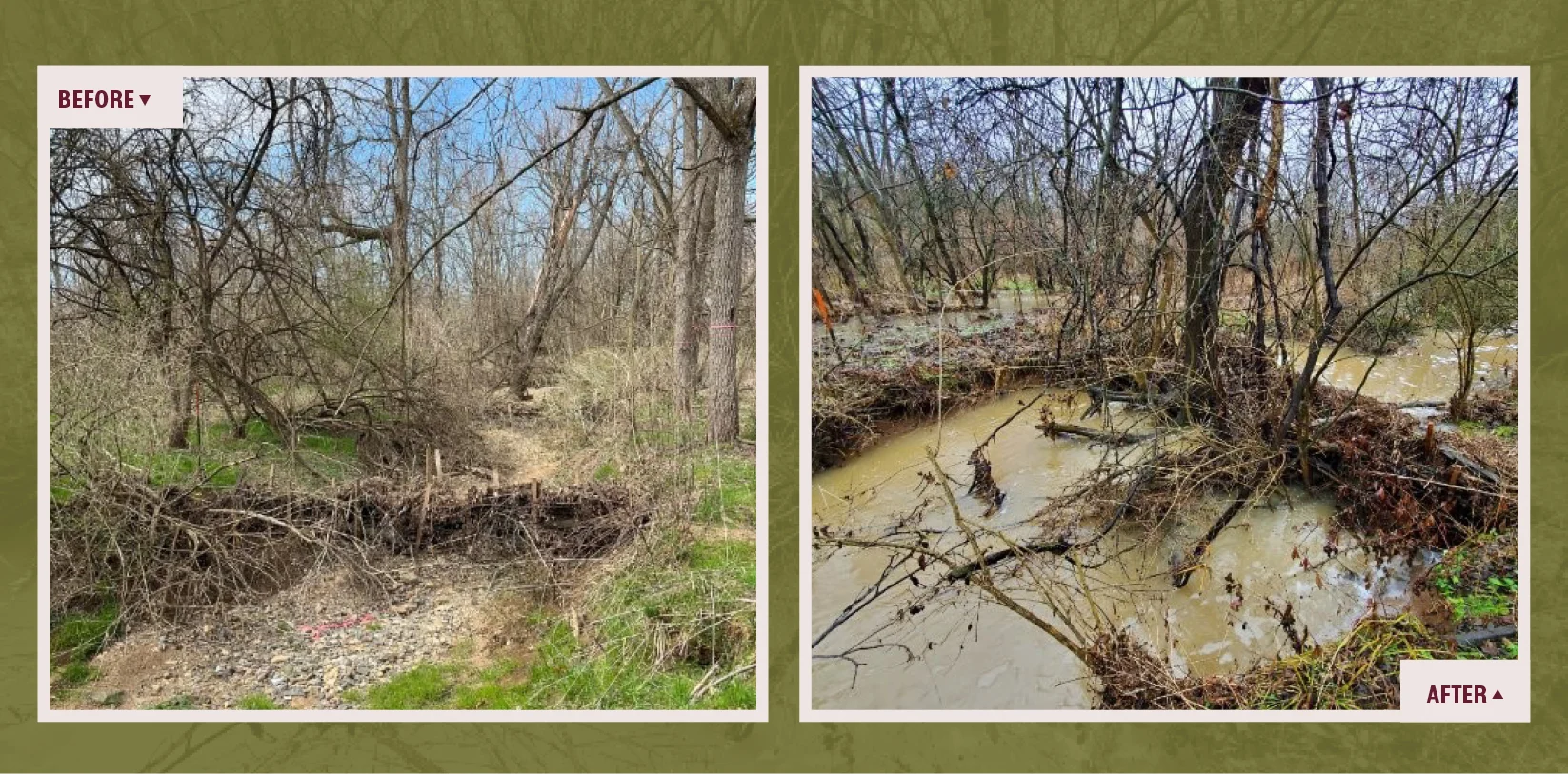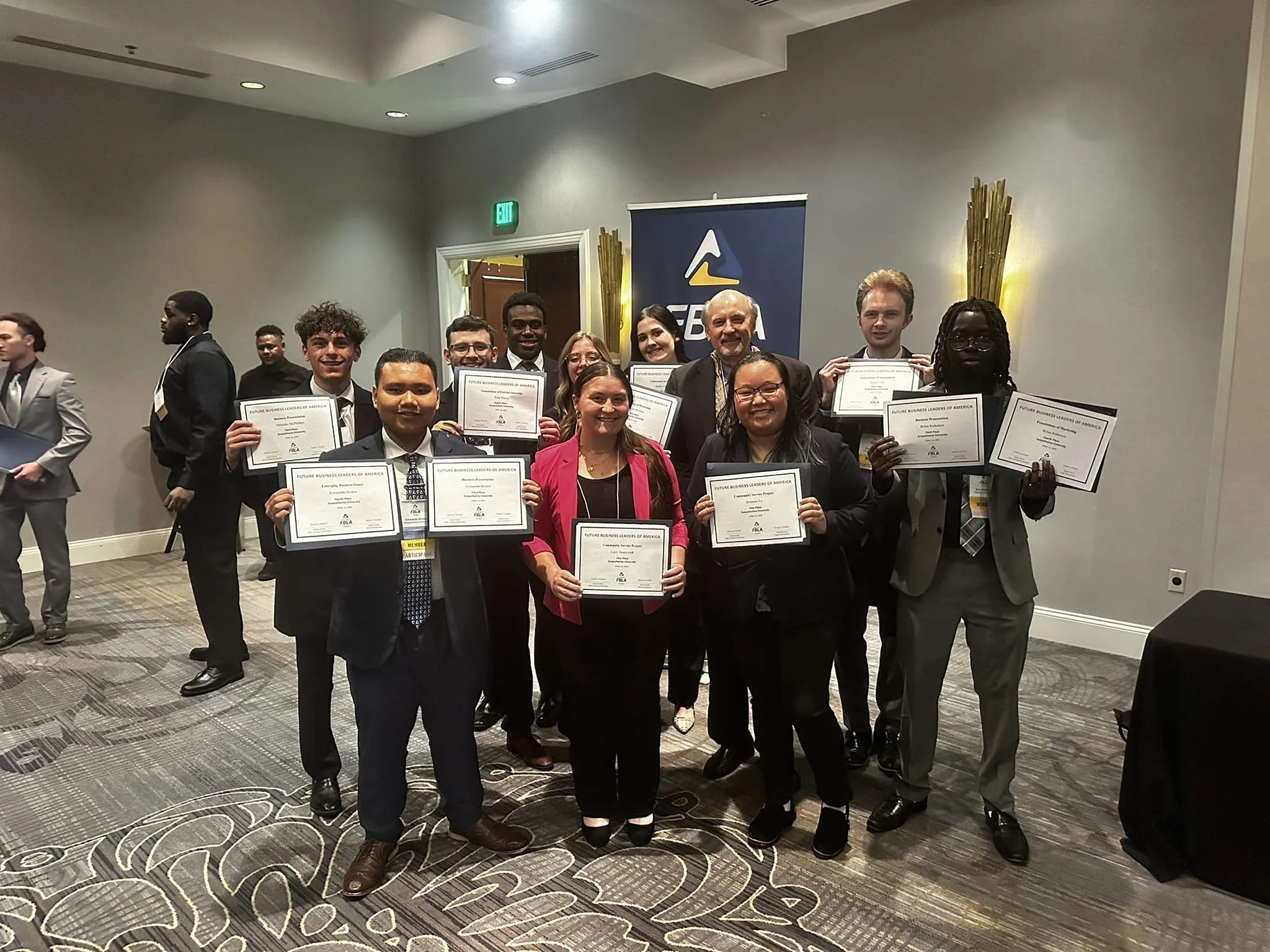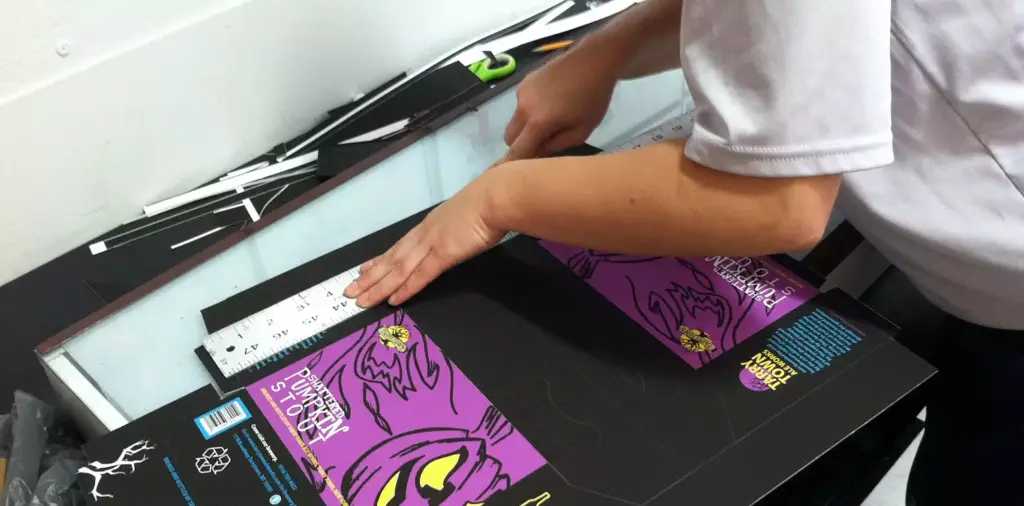Scientists have long observed that some animals eat their young, but research has struggled to explain exactly why. Now biology Professor Matthew Persons takes a step toward predicting such behavior — at least in the wolf spider.
“The wolf spider demonstrates extensive parental care,” Persons said, “however, they may also abandon or cannibalize their egg sacs.”
Persons, along with Susquehanna alumna Megan Marchetti ’11, currently a science teacher at Carlisle Area School District, found that the older the female wolf spider, the less likely she was to cannibalize or abandon her young.
Persons and Marchetti tested the effects of egg sac damage and the number of egg sacs a spider has produced (first-time mom versus second-time mom) on the abandonment and cannibalism decisions by 200 female wolf spiders.
They divided the spiders into four groups: spiders with intact first and second egg sacs, and spiders with damaged first and second egg sacs. They then daily monitored egg sac abandonment and cannibalism and measured differences in how the spiders searched for missing egg sacs and protected or groomed damaged egg sacs.
Their research found that first-time spider moms abandoned and cannibalized damaged egg sacs significantly more compared to undamaged egg sacs.
However, second-time spider moms were less bothered by egg sac damage and spent significantly more time protecting their second egg sacs compared to spiders with first egg sacs, and groomed damaged egg sacs significantly more than their undamaged egg sacs.
“Some animals, when one of their offspring is weak, will cannibalize that offspring in order to devote their full energy to those that are more likely to survive,” Persons explained. “Our findings support the theory that, as animals age and become less likely to produce future young, they are less likely to cannibalize or abandon the ones they have, regardless of how likely those offspring are to survive.”
Alumna uses spiders to connect with middle-school students
This is the first piece of published research for Marchetti, which she said helped her feel connected to science in a new way.
“Having that experience really is invaluable now as I work to inspire my students to be passionate about science and inquiry,” Marchetti said.
After her graduation from Susquehanna, Marchetti went on to earn her master’s degree in zoology from Miami University, Ohio, where she continued her research on wolf spiders before shifting her focus to teaching. Marchetti earned a second master’s degree in teaching from Shippensburg University and is now certified to teach biology in grades 6-12. As a seventh-grade life sciences teacher, Marchetti also serves as her school’s science fair coach.
“I hope to be a positive role model for my students, as a woman who has pursued science beyond learning about it in the classroom,” Marchetti said. “I love talking to my students about my experiences doing research and often find ways to tie wolf spiders into my lessons. Getting middle school students to be engaged in science is half the battle, and spiders always seem to hook them!”



